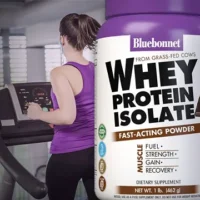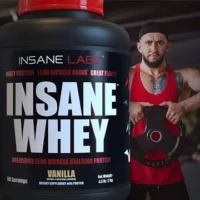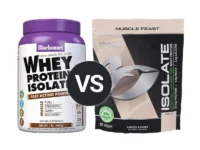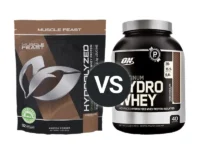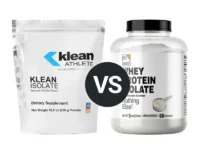Knowledge BaseYou're Questions Answered
What are the ingredients in whey protein powder?
Whey protein powder is widely used for its high protein content and beneficial amino acid profile. Understanding the ingredients in whey protein powder can help consumers make informed choices about their supplements. The primary components of whey protein powder typically include the protein itself and several additional ingredients that contribute to its flavor, texture, and nutritional value.
Main Ingredients in Whey Protein Powder
The primary ingredient in whey protein powder is whey protein, which comes in various forms:
- Whey Protein Concentrate (WPC): This form of whey protein contains about 70-80% protein by weight. It also contains some lactose and fat, which can contribute to a creamier texture and richer flavor.
- Whey Protein Isolate (WPI): WPI is processed to remove most of the lactose and fat, resulting in a product that is typically 90% or more protein by weight. It is a good option for those who are lactose intolerant or looking to maximize protein intake with minimal additional calories.
- Whey Protein Hydrolysate (WPH): This form of whey protein is pre-digested, meaning it is partially broken down to allow for faster absorption. It is often used in medical protein supplements and infant formulas.
Additional Ingredients
Beyond the primary whey protein component, several additional ingredients are commonly found in whey protein powders:
- Flavorings: Natural and artificial flavors are added to make the protein powder more palatable. Common flavors include chocolate, vanilla, and strawberry.
- Sweeteners: To enhance taste, sweeteners like sucralose, stevia, or monk fruit extract are often used. Some products may also contain sugar or corn syrup solids.
- Thickeners and Stabilizers: Ingredients such as xanthan gum, guar gum, or carrageenan are used to improve the texture and consistency of the protein shake.
- Lecithin: This is added to improve the mixability of the protein powder, making it easier to dissolve in liquids.
- Vitamins and Minerals: Some whey protein powders are fortified with additional vitamins and minerals to enhance their nutritional profile. Common additions include calcium, magnesium, and vitamin D.
- Digestive Enzymes: Enzymes like protease and lactase are often included to aid in the digestion and absorption of protein, particularly beneficial for those with lactose intolerance.
- Prebiotics and Probiotics: These are added to support gut health by promoting a healthy balance of bacteria in the digestive tract.
- Creatine: Commonly included in performance-focused protein powders, creatine can enhance muscle strength and endurance.
- Carbohydrates (e.g. Maltodextrin): Often found in weight gainers and mass gainers, carbohydrates like maltodextrin provide additional calories and can help replenish glycogen stores post-workout.
- Caffeine: Used in fat-burning protein powders, caffeine can boost metabolism, increase energy levels, and improve focus.
- Branched-Chain Amino Acids (BCAAs): These essential amino acids (leucine, isoleucine, and valine) are included to support muscle protein synthesis and reduce muscle fatigue.
- L-Glutamine: An amino acid that supports muscle recovery and immune function.
- Superfood Blends: Found in meal replacement shakes, these blends can include ingredients like spirulina, chia seeds, and kale to provide additional nutrients and antioxidants.
Considerations When Choosing Whey Protein Powder
When selecting a whey protein powder, it is important to read the ingredient label to ensure it meets your dietary needs and preferences. Those with lactose intolerance should consider whey protein isolate or hydrolysate, which contain less lactose. Additionally, individuals seeking to avoid artificial additives may prefer products with natural flavorings and sweeteners.
Ultimately, whey protein powder can be a valuable addition to the diet, providing a convenient and high-quality source of protein. Understanding its ingredients helps consumers choose the best product for their specific health and fitness goals.
Related Questions
Related Reviews
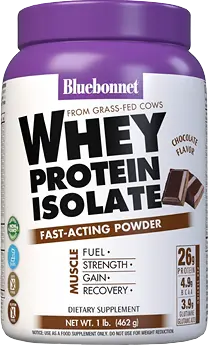
Your Answer
We are a participant in the Amazon Services LLC Associates Program, an affiliate advertising program designed to provide a means for us to earn fees by linking to Amazon.com and affiliated sites.

